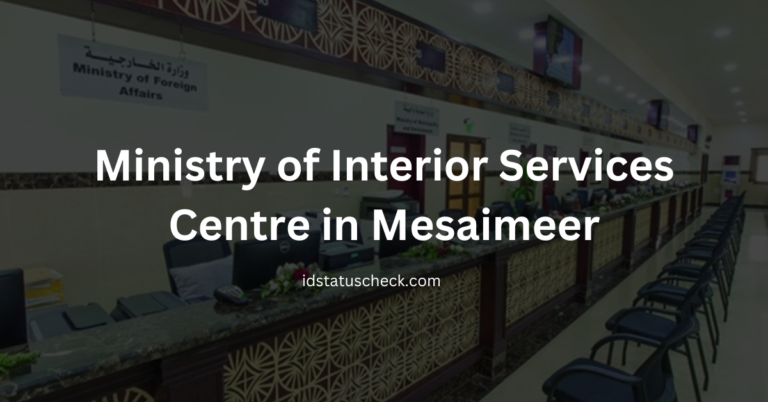Empowering Pharmacists Through Education: PAFI’s Commitment to Lifelong Learning and Professional Growth

In every corner of Indonesia — from the quiet shelves of small-town pharmacies to the busy corridors of major hospitals — pharmacists play a silent but vital role in the nation’s healthcare system. They are the bridge between medicine and humanity, the guardians of safety, and the educators of responsible use.
Behind the growing professionalism of these healthcare experts stands PAFI (Persatuan Ahli Farmasi Indonesia) — an organization that has spent decades nurturing competence, integrity, and innovation among Indonesia’s pharmacists. What sets PAFI apart is not just its size or reach, but its deep belief that education is the heartbeat of progress.
Learning as a Lifelong Calling
To PAFI, education is not a phase — it’s a lifelong commitment. A pharmacist’s work doesn’t end with a degree or a license. Medicines change, technology advances, and new health challenges emerge. This means learning must continue, evolve, and adapt.
That’s why pafi constantly provides opportunities for training, workshops, and professional certification, ensuring that pharmacists across Indonesia — whether in urban or remote areas — stay updated with current pharmaceutical practices.
But more than just upgrading technical knowledge, PAFI promotes a mindset of curiosity and continuous improvement. Learning, in PAFI’s view, isn’t about chasing titles; it’s about staying relevant, reliable, and responsible in a changing world.
From Knowledge to Practice
One of PAFI’s greatest strengths is how it connects theory with practice. Many professionals gain technical education in universities but struggle to apply it effectively in real-world settings. PAFI bridges that gap through collaborations with hospitals, universities, and health institutions, turning education into direct patient impact.
For example, when pharmacists participate in PAFI’s workshops on clinical decision-making, ethical responsibility, or drug safety, they don’t just learn abstract concepts. They learn how to apply them — how to speak with patients clearly, how to analyze prescriptions critically, and how to ensure that every medication dispensed truly helps, not harms.
This approach helps create pharmacists who are not just educated, but wise — people who understand that every capsule, every conversation, and every patient matters.
Creating a Culture of Growth
Education in PAFI’s world isn’t limited to classrooms or conferences. It lives in conversations, peer discussions, and shared experiences. Across Indonesia, regional PAFI chapters host peer-learning circles, where pharmacists openly discuss case studies, policy updates, and daily challenges.
This culture of collaboration builds not only competence but also community. When pharmacists come together to learn, they remind each other that they’re part of something bigger — a national effort to keep Indonesia healthy and informed.
PAFI often describes this as “learning in unity” — the idea that professional excellence grows stronger when shared.
Adapting to the Digital Era
In the age of technology, learning no longer has to happen face-to-face. PAFI has embraced digital tools to make education more inclusive and efficient. Through online learning platforms, webinars, and telepharmacy programs, the organization ensures that even pharmacists in remote islands can access the same level of knowledge as those in major cities.
These digital initiatives have opened new doors for innovation — encouraging members to explore topics such as AI in pharmacy management, digital prescription systems, and data-driven medication monitoring.
For PAFI, technology is not a threat to traditional practice — it’s an extension of it, a tool that helps pharmacists reach further and work smarter.
Ethics as the Core of Learning
While PAFI emphasizes innovation and skill, it never loses sight of the most important element of professional growth: ethics. A pharmacist’s responsibility is not only technical but moral — to ensure every decision, recommendation, and service reflects honesty, care, and public trust.
Through its ethics training and continuous advocacy, PAFI reminds its members that true professionalism is not measured only by knowledge, but by integrity.
As one PAFI mentor once said, “It doesn’t matter how much we know if we forget why we serve.”
Nurturing the Next Generation
PAFI also takes pride in guiding young pharmacists and students — those who will carry the torch of healthcare excellence into the future. By partnering with universities and organizing student programs, PAFI introduces the next generation to real-world challenges and ethical standards early on.
Mentorship programs connect students with experienced professionals, fostering confidence and compassion — two traits as vital as technical skill in the world of healthcare.
These efforts ensure that education becomes a cycle of giving — where knowledge flows from one generation to the next, preserving both skill and spirit.
Education as a Path to National Health
When PAFI invests in education, it’s not just investing in individuals — it’s investing in Indonesia’s future.
Every pharmacist trained, every program held, and every collaboration built contributes to a healthcare system that is safer, smarter, and more humane.
PAFI understands that public health begins not only with hospitals and doctors but with informed professionals who stand at the very heart of daily patient care.
In this way, education becomes more than a professional duty — it becomes a form of service to the nation.
Conclusion
The story of PAFI is, at its core, a story of belief — belief in the power of knowledge, in the dignity of service, and in the endless potential of learning.
By nurturing lifelong education, promoting ethical excellence, and embracing innovation, PAFI continues to build a foundation for Indonesia’s pharmaceutical future — one that values both science and humanity.

